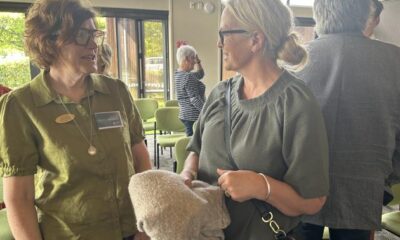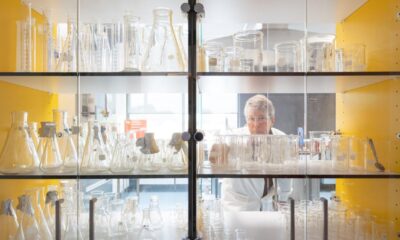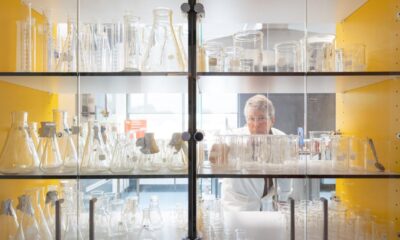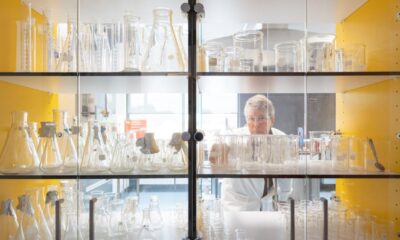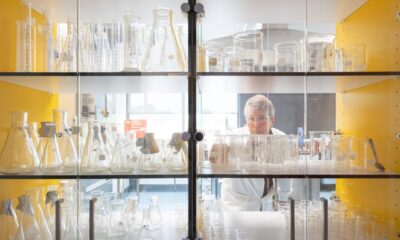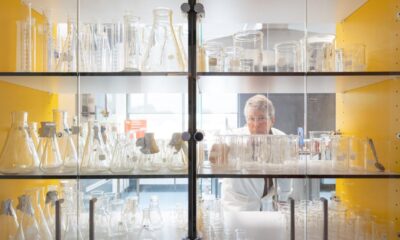Science
Student Unlocks Secrets of Heritage Apple Varieties in New Zealand
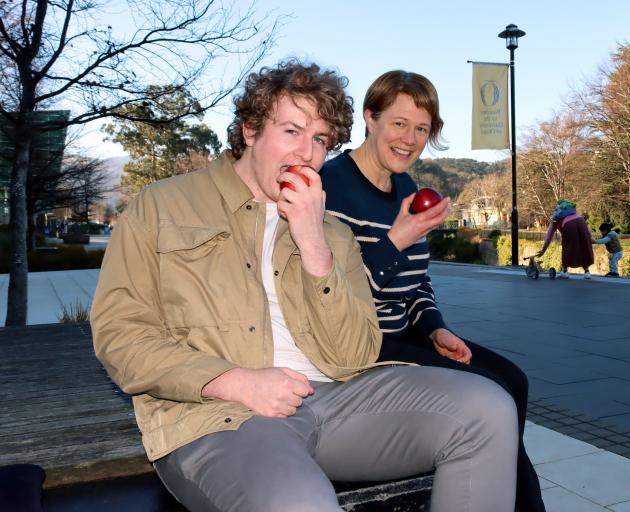
A master’s student in plant biotechnology, Aaron Hewson, is conducting groundbreaking research on over 300 apple varieties from the Jim Dunckley Heritage Orchard in New Zealand. Established by the Coastal Otago Branch of the New Zealand Tree Crops Association 25 years ago, this orchard boasts one of the most diverse collections of apple cultivars in the country. Among the unique varieties are those with intriguing names such as Peasgood Nonsuch, Nonnetit Bastard, Warner’s King, and Albany Beauty.
Mr. Hewson’s research aims to preserve and propagate these heritage cultivars through confident genetic identification. The apple varieties were collected in the 1990s by Jim Dunckley, who sourced them from various locations in Otago and Southland. Most of the specimens originated from an old Plant & Food Research orchard in Clyde. “It is a real kind of hodgepodge mix,” Mr. Hewson remarked, noting that some trees bear names given by local farmers that reference nearby landmarks. However, these names do not always align with the actual genetic identities of the apples.
In one notable instance, Mr. Hewson discovered that a cultivar named Lord Lambourne shared the same genetic profile as the well-known Granny Smith. “These two cultivars should be really different, but the samples were saying they were genetically the same,” he explained. This discrepancy highlights the importance of accurate identification in maintaining the integrity of heritage apple varieties.
To unravel these genetic mysteries, Mr. Hewson and his team collected samples labeled and freeze-dried for further analysis. These samples were sent to a specialized laboratory in France, facilitated by Plant & Food Research, which is now part of the Bioeconomy Science Institute. Mr. Hewson acknowledged the pivotal role of his co-supervisor, Dr. Elena Lopez-Girona, in guiding the research process. “It has been very beneficial to have her expertise,” he stated.
The research employs a technique known as SNP chip analysis, which examines approximately 50,000 known DNA hotspots in apple leaves to generate a genetic fingerprint of each variety. This method enables researchers to determine whether two trees are the same or different. With stringent biosecurity regulations limiting the import of new apple genetics, the local collection may prove essential for enhancing disease resistance and other beneficial traits in future apple cultivars.
According to Associate Professor Lynnette Brownfield from the University of Otago, the narrow genetic base of commercial apples in New Zealand underscores the need for this research. Identifying the unique characteristics present in the orchard can aid breeders in discovering fresh genetic material, including disease resistance, broadening the options available for future apple breeding.
The Coastal Otago Branch of the New Zealand Tree Crops Association, which owns the orchard, will ultimately decide how to utilize the findings from this research. The overarching goal is to assign unique identifiers to all trees within the collection, ensuring comprehensive knowledge of the varieties present. This will facilitate collaboration with apple breeders ranging from local backyard growers to larger organizations such as Plant & Food Research, allowing them to access germplasm when needed.
In a world where apple diversity is at risk, the work being done by Mr. Hewson and his colleagues represents a vital step toward safeguarding New Zealand’s rich heritage of apple cultivars. Their efforts not only honour the legacy of past growers but also pave the way for a more resilient future in apple cultivation.
-

 World1 week ago
World1 week agoPrivate Funeral Held for Dean Field and His Three Children
-

 Top Stories2 weeks ago
Top Stories2 weeks agoFuneral Planned for Field Siblings After Tragic House Fire
-

 Sports3 months ago
Sports3 months agoNetball New Zealand Stands Down Dame Noeline Taurua for Series
-

 Entertainment3 months ago
Entertainment3 months agoTributes Pour In for Lachlan Rofe, Reality Star, Dead at 47
-

 Entertainment2 months ago
Entertainment2 months agoNew ‘Maverick’ Chaser Joins Beat the Chasers Season Finale
-

 Sports3 months ago
Sports3 months agoSilver Ferns Legend Laura Langman Criticizes Team’s Attitude
-

 Sports1 month ago
Sports1 month agoEli Katoa Rushed to Hospital After Sideline Incident During Match
-

 World2 weeks ago
World2 weeks agoInvestigation Underway in Tragic Sanson House Fire Involving Family
-

 Politics2 months ago
Politics2 months agoNetball NZ Calls for Respect Amid Dame Taurua’s Standoff
-

 Top Stories2 weeks ago
Top Stories2 weeks agoShock and Grief Follow Tragic Family Deaths in New Zealand
-

 Entertainment3 months ago
Entertainment3 months agoKhloe Kardashian Embraces Innovative Stem Cell Therapy in Mexico
-

 World4 months ago
World4 months agoPolice Arrest Multiple Individuals During Funeral for Zain Taikato-Fox

